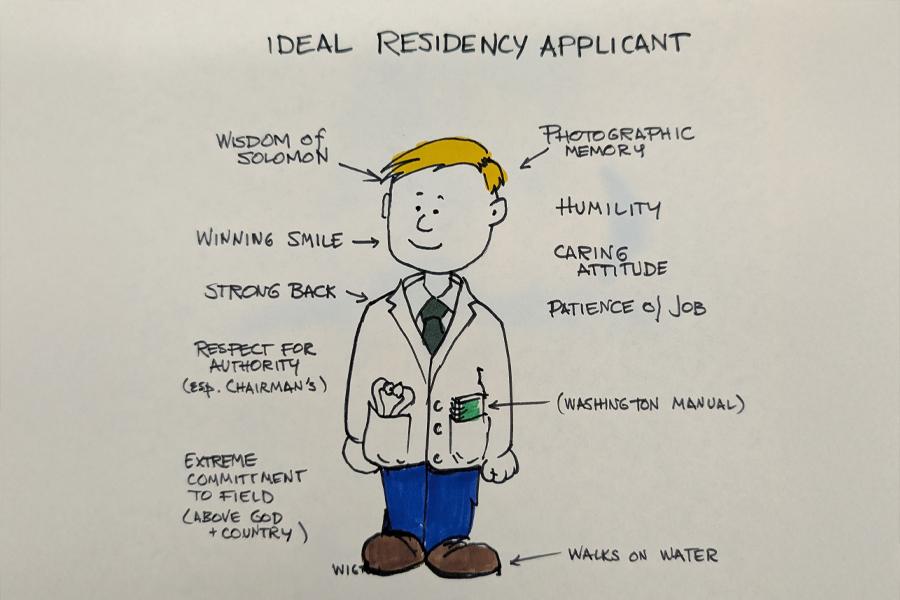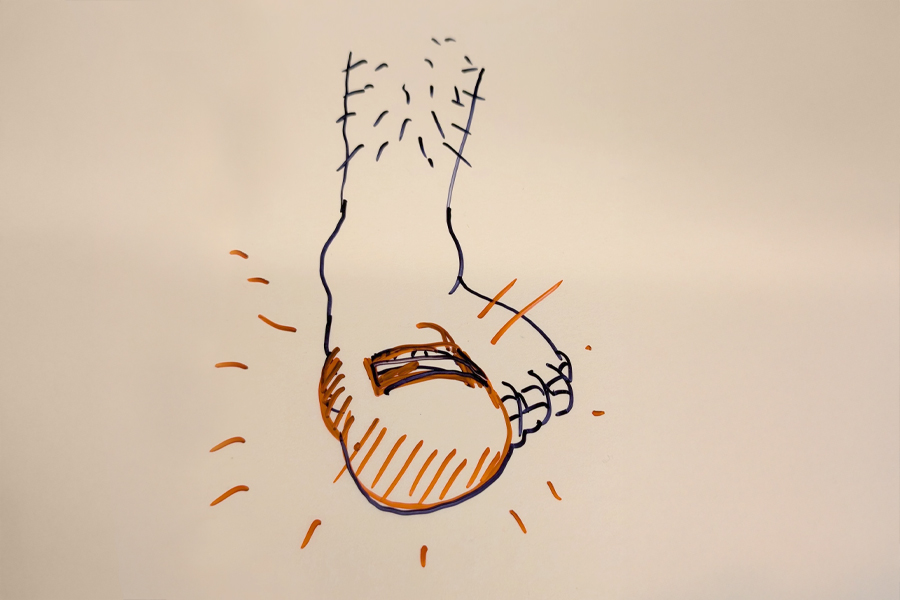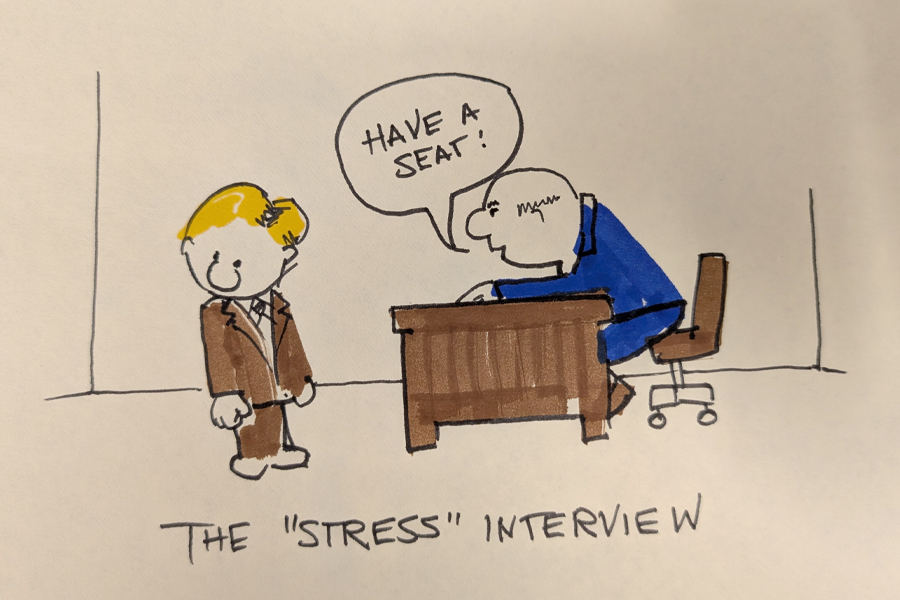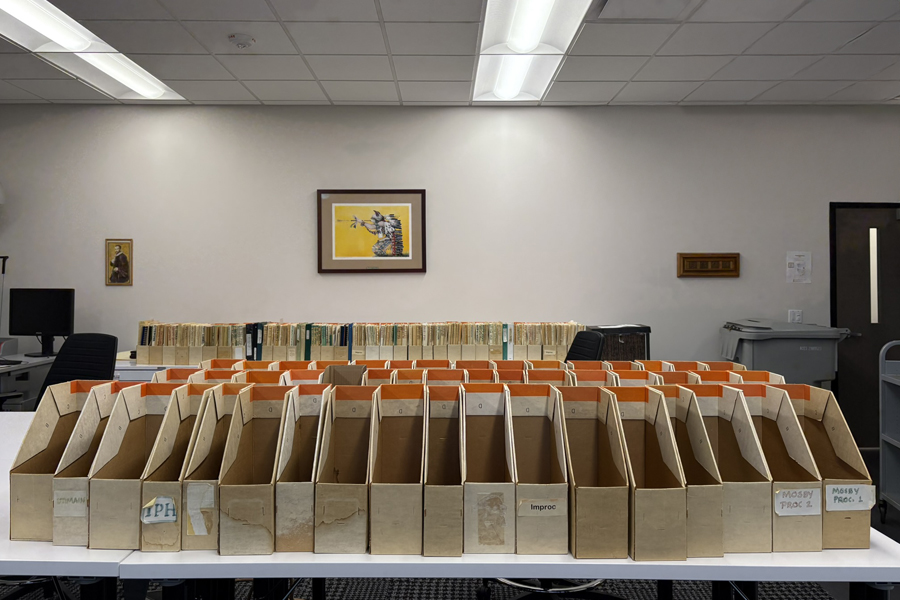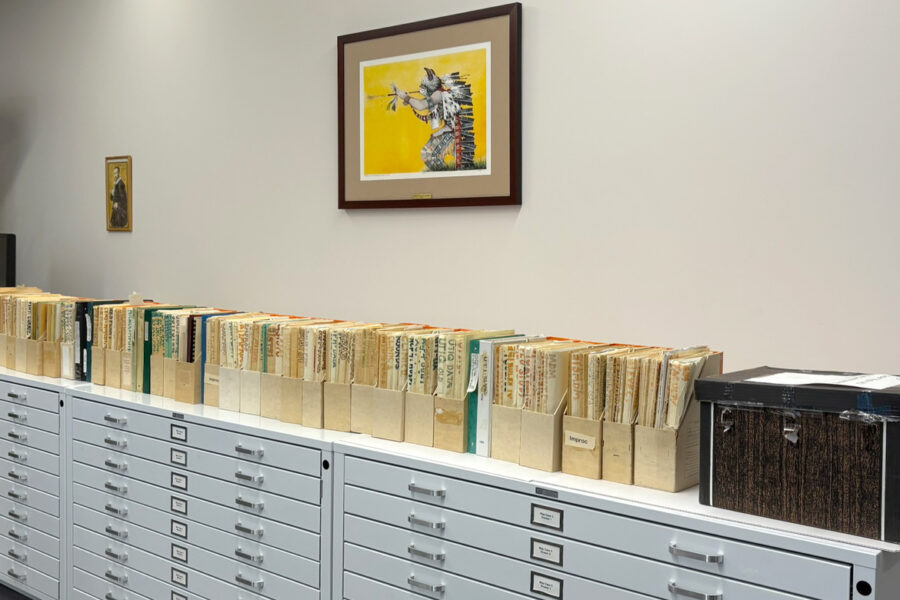Author
Kelly Gonzalez, Archives Specialist
Archives staff and our volunteer recently finished a several months long project evaluating and preparing the Robert S. Wigton collection for processing. The collection originally consisted of over 85 linear feet of archival material, legacy media, and slides documenting Dr. Wigton’s extensive career as a physician, professor, and campus leader for over 40 years.
About Robert Wigton, MD
Dr. Wigton was an early adopter of computers in medical education. He led efforts on campus in computer literacy, was active in curriculum creation, and conducted many studies on student learning. As such, his professional papers depict significant moments of change on campus. He was a prolific author of scientific articles and active on the national level in several professional societies, especially related to medical decision making. Dr. Wigton was also part of a legacy family at the university with seven family members graduating and four members teaching at the institution over several generations. His records contribute genealogical material to an existing family legacy in the archives.
Steps Toward Preservation
The completion of the following preparatory steps is important for understanding the topics represented in an archival collection so staff can plan for resources and space. A main component of preparing a new collection, especially one this large, is determining what is essential material to preserve.
When evaluating newly acquired records, archives staff have to think about how researchers will search for information. Years in the future, people who are researching historical train routes, for example, aren’t going to think about Dr. Wigton’s medical career papers as a possible location for such information, meaning saving travel brochures and old flight tickets here at UNMC would take up room that could be better utilized. Dr. Wigton’s travel material is outside the scope and focus of the archives at McGoogan Library and is recycled or returned to his family.
No archive has the space to keep unlimited copies. Dr. Wigton received requests from all over the world to share copies of his publications, and he had boxes of reprints. The archives always saves two copies, but staff had to thin out many extra articles and class handouts that he had saved for a rainy day.
Staff in the archives are experts and can quickly sort through what has enduring historical value, what has more personal value, and what is allowed to be saved and accessed according to the law. Historical collections are also required to follow federal laws on health and education information privacy. All collections are reviewed for student and patient material that should be restricted or removed from the archives. Staff evaluated Dr. Wigton’s collection for any sensitive information that might have been captured during his long career as a clinician, professor, researcher and administrator.
In total, staff were able to reduce the collection size by 30%. This not only will save on special archival folders and boxes during final processing, it will also make it easier to locate relevant documents for researchers when they use the collection in the future. Researchers will be able to access evidence of Dr. Wigton’s art and doodles, class notes, research studies, conference and professional society involvement, Office of Graduate Medical Education business, published articles, correspondence, presentation slides, genealogical items, and much, much more.
Learn more about Dr. Wigton’s legacy in the form of the Wigton Heritage Center.
Photos from the Robert S. Wigton Collection
Click on the photos below to view them larger.
